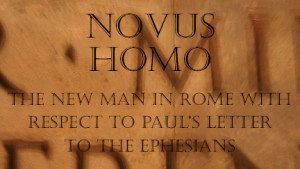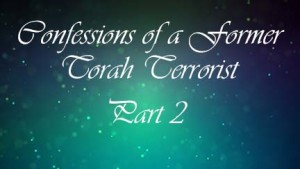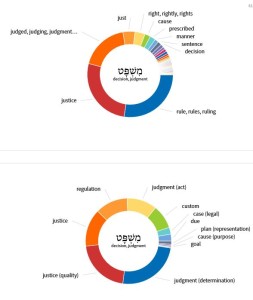Changing gears – a new direction for The Ancient Bridge
 As much as we like to stay in the same place forever, sometimes God places us into a certain mode of operation for a time in order to train us for what we are really meant to do. Those of you who know me, know that I never planned on writing any of my three published books and that every book that was ‘my idea’ never could get beyond the first chapter so generally I sit around studying whatever tickles my fancy, waiting impatiently, and then one day He tells me what my next assignment is.
As much as we like to stay in the same place forever, sometimes God places us into a certain mode of operation for a time in order to train us for what we are really meant to do. Those of you who know me, know that I never planned on writing any of my three published books and that every book that was ‘my idea’ never could get beyond the first chapter so generally I sit around studying whatever tickles my fancy, waiting impatiently, and then one day He tells me what my next assignment is.
Ten years ago I got a long term ‘heads up’ in the form of a very vivid dream.
I was in an upper room, sitting at a round table in front of a projector screen. On the table in front of me was a sheet of music and playing on the projector was a documentary about a middle aged couple with 100 children, none of them biological. As I sat there in admiration, I realized that I was watching a video of myself and my husband.
Well, I woke up freaked out, convinced that Mark and I were going to adopt/foster 98 more children. I cannot convey the absolute horror that produced in me. I loved my own kids but pretty much hated everyone else’s. I informed God that if this was the plan He was going to have to fundamentally change who I am from the inside out. Four years ago when we moved to Lakeville, MN – our house just happened to sit next to a home based daycare.
There’s something about children who rarely see their parents that is incredibly endearing – I found that a child values the people who don’t have to spend time with them, but do so anyway. They can tell the difference. As I worked renovating the backyard, they would ask questions and I would answer. Answer time became silly story time, or sometimes I would sing to them. I couldn’t walk out my back door without hearing, “Tyler, will you tell us a story?” They had two stories they wanted to hear, the scary-silly “dark-dark” story and the story about the cute little (various animal) named (one of the day care kids) who really wanted to be a (ridiculous food item) and ended up getting eaten by a T-Rex after quizzing every other animal at the zoo about how to accomplish their goal. I learned that it wasn’t the story that they really loved, but the time and effort spent on their behalf to genuinely engage with them. With some of the really little guys, my name was one of their first words.
We moved away in March. I miss those little stinkers – especially now way out in the country with no neighbors and no kid voices, my own kids being hairy, deep voiced and oftentimes smelly teenage boys.
Anyway, two years ago a dear friend in Ghana named Cassyama – a mighty Christian woman of God – was praying for me and had a vision. She told me she saw me surrounded by “so many children.” I told her about my dream eight years before. She suggested I get into children’s ministry.
What? Me? No way! Yuck – no one respects children’s ministry! Visions of crayons and glitter danced in my head, and my eyelid twitched nervously. My very first ‘ministry’ position was as a Sunday school teacher to Middle Schoolers – not only was I just a brand new believer but I wasn’t even a parent – I was not equipped. They didn’t care – they needed a more mature version of day care and they handed me the little felt dudes and put me to work. It was a disaster. I can assure you it was NOT better than nothing, it was FAR FAR worse.
Anyway, I then wrote and published The Bridge – my outreach to the Christians I had so brutally and arrogantly (and ignorantly) burned my bridges with years before. Then I wrote and published King, Kingdom Citizen in response to the growing divide between Jews and former Gentiles within the Messianic movement. I was getting ready to write a book called Eternal: Our God, His Temple and the Aaronic Priesthood when I got waylaid. I even had majorly respected teachers lined up and willing to help me out with it. But then I got different marching orders – to write a children’s curriculum book on honor and shame culture in the Bible.
Writing a textbook was different than anything else I had ever done – it was harder. When you teach adults you can make leaps and ask them to make the jump with you, but with kids you have to take them step by step, not leaving things out. Teaching children requires a more compassionate pace – and it also means not always being able to teach everything you know, but limiting yourself to what they need and what will help them become critical thinkers, someday able to interpret Scripture themselves. So I wrote the ten week curriculum and published it about ten weeks ago and got my first review this week from a man who has a PhD in Biblical Geography, a University Professor – five stars. Wow, that was unexpected.
I also began my youtube channel, Context for Kids – you can find the link on my sidebar. I am doing short weekly teachings, starting this year with the first five books of the Bible – no doctrine, just context. Like my book, the videos aren’t for kids – they are for families. I am not a substitute teacher – I think that if the kids learn something then the parents should know it too. My book and videos are designed to get families learning and talking as a unit – to be mini-scholarly communities and not scholarly individuals. I read all those horrid scholarly books and articles and translate them into what I affectionately call ‘normal speak.’ I teach kids the exact same things that I teach adults – well, mostly. This week’s Torah portion was tough since half of it involved sex of some kind so I played it safe. My poor kids are never spared the details but I respect differences in approach and the ages involved. Not everyone is teaching 14 year olds.
I’ll be honest – I enjoy writing for adults but I don’t really enjoy teaching them. What I enjoy is putting concepts down on paper in as clear language as possible, but presenting those concepts to adults who are often very critical and wanting the Bible to be plainly understandable as it is – well, it can be pretty hazardous work. Some people are hostile to the thought that Bible people were entirely different than we are today. Adults are invested with agendas and sometimes with legends and many read only so that they can react negatively – but kids aren’t like that. Kids are still able to learn new and wonderful things without being offended by them – they aren’t invested with so much tradition that they can’t see clearly yet, the way we are. What I want to do is not to teach kids doctrine – that is a parental responsibility and privilege. I am a teacher of history and character – I believe that when kids get a glimpse of another way of life, the way of life that existed in Bible times, that no one will be able to tell them that the Bible is just a book of fairy tales. They are going to see the Bible for what it is, a history book that reveals God’s character, and His redemptive plan through His Son Yeshua (Jesus).
I believe, that in learning the Ancient Near Eastern historical and First Century context of scripture, that all believers in the God of Abraham, Isaac and Jacob and His Messiah can find common ground. We parents see the obstacles facing our kids, we see the terrible character of believers in our real and online lives, we see the needless wars being fought between people who genuinely all want to honor our God but disagree about what that looks like. I think that we can be united around a desire to equip our children to BELIEVE the Bible is true, and to UNDERSTAND in context why Yeshua (Jesus) is the Messiah. The world is going to pelt our kids with loaded questions that quoted Bible verses won’t be enough to answer. University professors, and even many believing professors, will tell them that the Bible wasn’t written when it says it was or by who it says it was written by. We need to stop that before it happens. Believe me – I used to specialize in asking those types of questions, and now I answer them.
Right now I am transitioning TAB towards children’s ministry. I have nine different curriculum books in my brain and another one on developing Biblical character through the proverbs. I am trying to figure out a way to gather a group of parents together online, in a place where doctrine and agenda are outlawed and we all work together to better educate our kids on the provable context of the Bible. I firmly believe in the Biblical principle of throwing the divisive brothers and sisters out in the name of a healthy and respectful learning atmosphere. I have said it many times – I believe that this generation coming up is THE generation. They’re different, and we have the opportunity to undo some of the divisiveness that has characterized the Body of Believers for too long. We may not be able to unite around this or that doctrine, but we can unite as parents who see a desperate need for our kids to be able to prove that the Bible is our history, and our future. You may not agree with my doctrine and I may not agree with yours – but I don’t teach mine and I won’t question you about yours, I only teach context and character through archaeology and the written Word.
I don’t want children’s ministry to be an afterthought – I want to teach them grown up context at kid speed. They deserve to be our priority because their spiritual lives are most certainly going to be harder than ours. There are people out there trying to do great kids ministry, but too many are struggling because they aren’t considered to be the ‘real’ teachers (in my case it was actually tragically accurate) – the glory and investment goes to the adults, but that just doesn’t make sense to me. I am 46 years old and I don’t need to be equipped as badly as someone who is a kid right now. I think we need to re-examine what we have been doing and what it is we value. Kids ministry can be fun, but it has to accomplish the goal of equipping our kids or it is nothing more than daycare. I am taking a break while I get this figured out – video teaching might be late this week. I don’t want to rush in but I don’t want to delay either.
I have a few grown up “meme” blogs that I am working on in various states of being finished, but other people are beginning to research this and speak out so I feel the need for me to do it is lessening. I don’t know what all this is going to look like yet, but I guess I am eager to find out.




